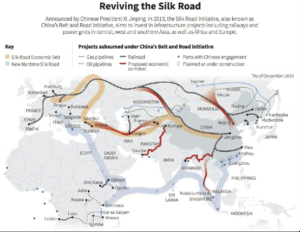Romania's Strategic Role in U.S. Black Sea and NATO Policies Explored
The Facts -
- Romania is crucial for NATO and U.S. interests in the Black Sea.
- Romania leads U.S. energy ventures, becoming Europe's top gas producer.
- Romania hosts key U.S. military assets and exceeds NATO defense spending.
Romania’s Pivotal Role in NATO and U.S. Strategic Interests Amid Upcoming Elections
As Romania gears up for two significant rounds of elections, its strategic role in NATO's southeastern flank becomes increasingly crucial. Positioned by the Black Sea, Romania emerges as a vital ally for the United States, particularly in countering Russian aggression and supporting Ukraine's reconstruction. Historically, Romania has demonstrated unwavering military support for the U.S., extending from Iraq to Afghanistan.
The Mihail Kogălniceanu (MK) air base, located near the Black Sea, is central to U.S. and NATO operations, functioning as a hub for defending critical infrastructure and maintaining freedom of navigation. With billions of dollars in investments on the line, strengthening the U.S.-Romania partnership is crucial to stabilizing the Black Sea region.
Since the 1990s, American investments have been pivotal in integrating the energy economies of Central Asia and the Caucasus via the Black Sea. The recent agreement between the United States and Ukraine marks another significant milestone in developing the Black Sea's natural resources.
The U.S.-Ukraine Reconstruction Investment Fund stands to significantly impact Ukraine's postwar economy by enhancing its integration with Europe and the broader Atlantic-Mediterranean space, with Romania playing a central role.
In energy, Romania leads the charge in joint ventures with American companies to develop the Neptun Deep natural gas reserves, set to make it Europe's largest natural gas producer by 2027. Companies like Halliburton, Oceaneering, and Transocean are key players in this venture, supporting the Ukraine Reconstruction Fund's endeavors to develop adjacent offshore gas reserves.
Furthermore, Romania is a crucial partner in adopting American small modular reactor (SMR) technology, which could enhance energy resilience across Europe and boost strategic autonomy.
Militarily, Romania's strategic location has made it an essential hub for U.S. operations for over 20 years. The deployment of the U.S. Aegis Ashore Ballistic Missile Defense System in Romania underscores its strategic importance, especially in light of potential missile threats from Iran.
Romania's defense spending exceeds NATO's 2 percent threshold, with significant investments in U.S. military systems such as the F-35, F-16, and Patriot missile batteries. The MK airbase hosts 1,840 U.S. personnel, with Romania investing €2.5 billion in its modernization.
The U.S. Black Sea strategy, as outlined in the 2024 National Defense Authorization Act, aims to deter Russian threats and fortify regional states' resilience. This strategy hinges on the robust economic and security partnership between the U.S. and Romania.
Despite ongoing challenges, including corruption and governance issues, Romania's democratic governments have consistently aligned with pro-American and pro-NATO policies. American foreign policy should prioritize collaboration with Romania's elected government to safeguard U.S. interests in the Black Sea.
President Trump, in a potential second term, should pursue three strategic actions with Romania: bolster U.S. troop deployments at the MK base, enhance connectivity with Ukraine's European neighbors, and expand mine-clearance efforts in the Black Sea.
The deepening of the U.S.-Romania alliance, supported by American power, highlights that "America First" does not signify "America Alone." Instead, it signifies a joint effort with allies to advance shared interests.
---
Read More USA Works News


